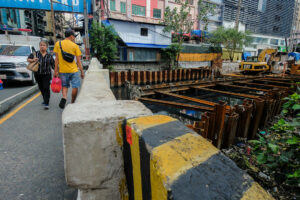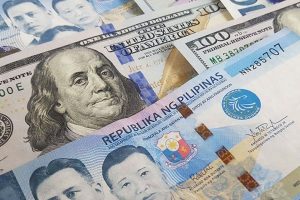FISCAL TRANSPARENCY reforms, starting with the easing of the bank secrecy law, may help curb corruption more effectively than demonetizing large-value peso bills, the Bangko Sentral ng Pilipinas (BSP) said.
In a research blog posted on Tuesday, BSP officials said the proposed demonetization of P1,000 and P500 bills is a “blunt, high-cost instrument against corruption.”
“If the objective is to combat corruption, financial transparency reforms offer far greater promise. Chief among them is reforming the bank secrecy law (Republic Act No. 1405), still one of the strictest in the world,” they said.
The blog post was authored by BSP Assistant Governor Maria Margarita Debuque-Gonzales, BSP Deputy Governor Mamerto E. Tangonan and Eloisa T. Glindro, director at the BSP’s Currency Policy and Integrity Department (CPID).
“Easing bank secrecy — with appropriate safeguards — would empower investigators to trace illicit funds, match deposits to asset declarations, and build prosecutable cases,” the BSP officials said. “Unlike demonetization, which imposes broad costs on the public, transparency reform targets corruption at its source.”
Former Finance Secretary Cesar V. Purisima earlier suggested the demonetization of P1,000 and P500 bills to curb corruption, as it would make it more difficult to transport large sums of cash.
His proposal came after a Senate probe revealed that several Public Works officials delivered around P1 billion in cash packed in multiple suitcases to a lawmaker.
“Demonetization is rarely effective in cash-dependent economies. Its costs are immediate and widespread, while its supposed deterrence fades quickly. Where it has worked, implementation was gradual, well-prepared, or limited to denominations already peripheral to daily use,” the BSP officials said.
They cited India’s experience in demonetization of 1,000 and 500 rupee notes in 2016, which was aimed at curbing corruption, eliminating counterfeit notes and driving digital payments. It resulted in long lines outside banks, closure of cash-based businesses and lost income for informal workers, but “the intended purge of illicit wealth never materialized.”
Similar to India, cash dominates financial transactions in the Philippines. The P1,000 bills comprise 83% of the total value and 40% of the volume of all cash in circulation in the country, according to central bank data.
Based on CPID estimates, replacing around 2.5 billion pieces of P1,000 and P500 bills, valued at P2.2 trillion, would take 93% of the value and 51% of the volume of all notes in circulation. Sunk printing costs are estimated to reach around P11.5 billion, excluding expenses for replacement, storage, transport, and destruction.
“The Philippines faces a clear choice. Demonetization is a blunt hammer: disruptive, regressive, and credibility-weakening. Bank secrecy reform, digitalization, and transparency measures are the scalpel: precise, targeted, and capable of real change,” the BSP officials said.
“If the goal is not merely to be seen fighting corruption but to succeed in reducing it, then the path forward lies in trust-building, transparency, and reform — not currency shock therapy.”
The proposed amendments to the Secrecy of Bank Deposits Law are included in the Legislative-Executive Development Advisory Council’s 44 priority bills for the 20th Congress.
Under the law, banking officials and others are prohibited from revealing information about bank deposits as those are considered confidential and safeguarded against unauthorized access.
Proposed amendments to the law include giving the BSP authority to investigate the deposit accounts — including foreign currency deposits in banks operating in the Philippines and offshore branches of domestic banks — of persons suspected of fraud or other illicit activities. — K.K.Chan

















